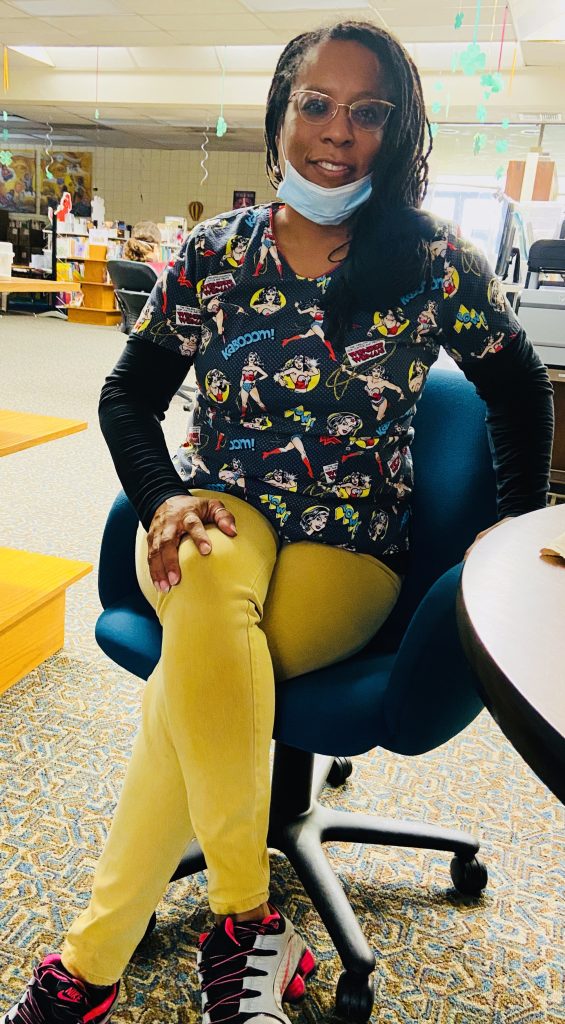Adult school helps students build a career in health care

pursue her dream of becoming a nurse.
Photo courtesy of Joyce Glaspie.
Joyce Glaspie never had the chance to get to know her grandparents: Her mother’s parents passed away before she was born, and her father’s parents lived far away in Texas.
“So, I decided when I was around 12 that I was going to become a nurse and take care of old people and treat them as if they were my grandparents,” she says.
As a young girl, Glaspie excelled in school and thrived in gifted classes. Even after she was sent to an alternative school for teen mothers due to a pregnancy during her freshman year, she still managed to graduate a year early. After graduation, she supported her family, cleaning houses and working at a local factory, but quickly found it unfulfilling.“I knew that I had the ability to do something else with my life. I think it was because of that early schooling where I was always in the advanced classes,” she says. “I knew I had more potential than the factory, but what I didn’t have was the family support and I didn’t have the finances.”
With traditional college out of reach, Glaspie searched for a faster route to a new career. That’s when she found the vocational nurse program at Hanford Adult School.
“If you don’t have the support and finances to do a traditional college, there’s still another route for you.”
Joyce Glaspie, Vocational nursing program coordinator, Visalia Adult School
According to Heather Keran, Alternative Education Manager with Hanford Joint Union High School District, the health care field has many job options in the Central Valley.
“There is a huge demand at all levels of the health field for staffing with patient care as the core responsibility of CNAs, LVNs, phlebotomists, respiratory techs, and innumerable other ancillary positions up through the nursing staff,” says Keran. “In our education programs, with as little as one semester to two year’s worth of invested time, a student has applicable, marketable, job-ready skills that they can go with into the workforce.”
For Glaspie, the path from licensed vocational nurse (LVN) to registered nurse (RN) was a difficult but rewarding journey, one that allowed her to support her family and build a career she loves. Today, she’s still in school, both as a student working toward her master’s degree and as an educator: She’s currently coordinator of the vocational nursing program at Visalia Adult School.
“I try to encourage as many people as possible to do a career technical education or trade school,” she says. “If you don’t have the support and finances to do a traditional college, there’s still another route for you. No one told me that so I want to encourage others who might be in similar situations that they too can be successful.”
For more information on health care and other career pathway options, visit www.sequoiasadulted.com/pathways.
Written by Anne Stokes.
| Regions | Classes & Topics |
|---|---|
| Central California | Careers in Health Care |